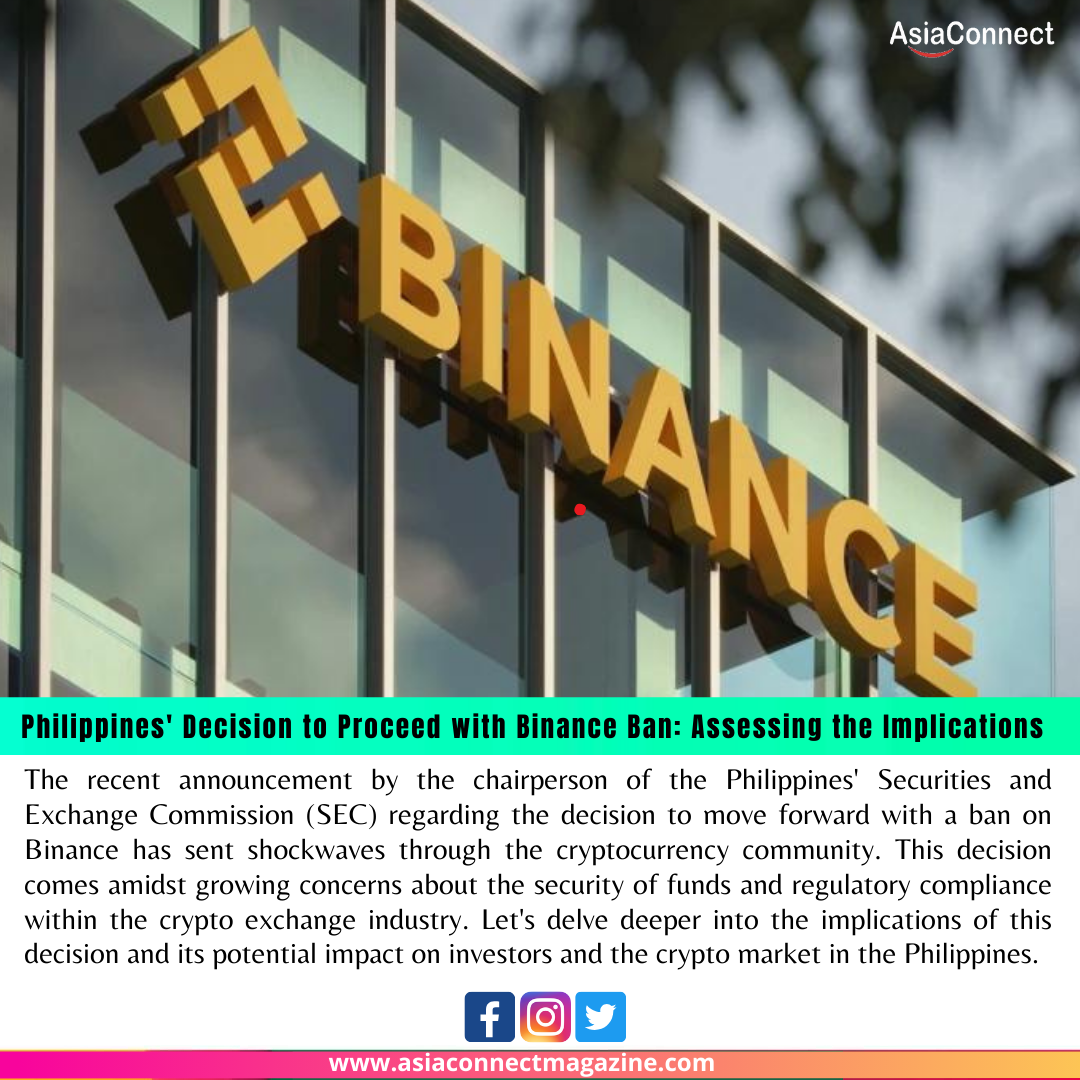The recent announcement by the chairperson of the Philippines’ Securities and Exchange Commission (SEC) regarding the decision to move forward with a ban on Binance has sent shockwaves through the cryptocurrency community. This decision comes amidst growing concerns about the security of funds and regulatory compliance within the crypto exchange industry. Let’s delve deeper into the implications of this decision and its potential impact on investors and the crypto market in the Philippines.
Firstly, it’s essential to understand the context behind the SEC’s decision. Binance, one of the world’s largest cryptocurrency exchanges, has faced scrutiny from regulators in various countries due to regulatory compliance issues and concerns about investor protection. The Philippines’ SEC has expressed apprehensions about Binance’s operations, citing potential risks to the security of funds belonging to Filipino investors.
The decision to ban Binance raises several important questions and considerations. One of the primary concerns is the impact on investors who currently use Binance for trading and investment purposes. The ban could disrupt their access to the platform, leading to uncertainties and potential challenges in managing their cryptocurrency portfolios.
Moreover, the ban on Binance could have broader implications for the crypto market in the Philippines. Binance is a major player in the global crypto ecosystem, offering a wide range of cryptocurrencies for trading and investment. Its absence in the Philippine market could limit options for local investors and traders, potentially affecting liquidity and market dynamics.
On the regulatory front, the Philippines’ decision reflects a broader trend of increased scrutiny and regulatory oversight in the cryptocurrency industry. Regulators worldwide are grappling with the complexities of regulating digital assets, balancing innovation with investor protection, and addressing concerns such as money laundering and fraud.
From an investor protection perspective, the SEC’s move to ban Binance underscores the importance of robust regulatory frameworks and adherence to compliance standards within the crypto exchange sector. Investors need assurance that their funds are secure, and exchanges must prioritize transparency, security measures, and regulatory compliance to build trust and credibility.
However, the ban on Binance also highlights the challenges and complexities of regulating a rapidly evolving industry like cryptocurrency. Balancing innovation and investor protection requires a delicate approach, with regulators and industry players working collaboratively to foster a safe and conducive environment for crypto activities.
Looking ahead, the Philippines’ decision to ban Binance is likely to prompt discussions and debates within the crypto community, regulators, and policymakers. It underscores the need for clearer regulatory guidelines, enhanced oversight mechanisms, and proactive measures to address emerging risks and ensure investor confidence in the crypto market.
In conclusion, the Philippines’ move to proceed with a ban on Binance reflects broader concerns about investor protection and regulatory compliance within the cryptocurrency sector. While aimed at addressing potential risks, the decision also raises questions about market dynamics, investor access, and the evolving regulatory landscape. Moving forward, collaborative efforts between regulators, industry players, and stakeholders will be crucial in shaping a balanced and resilient crypto ecosystem.





